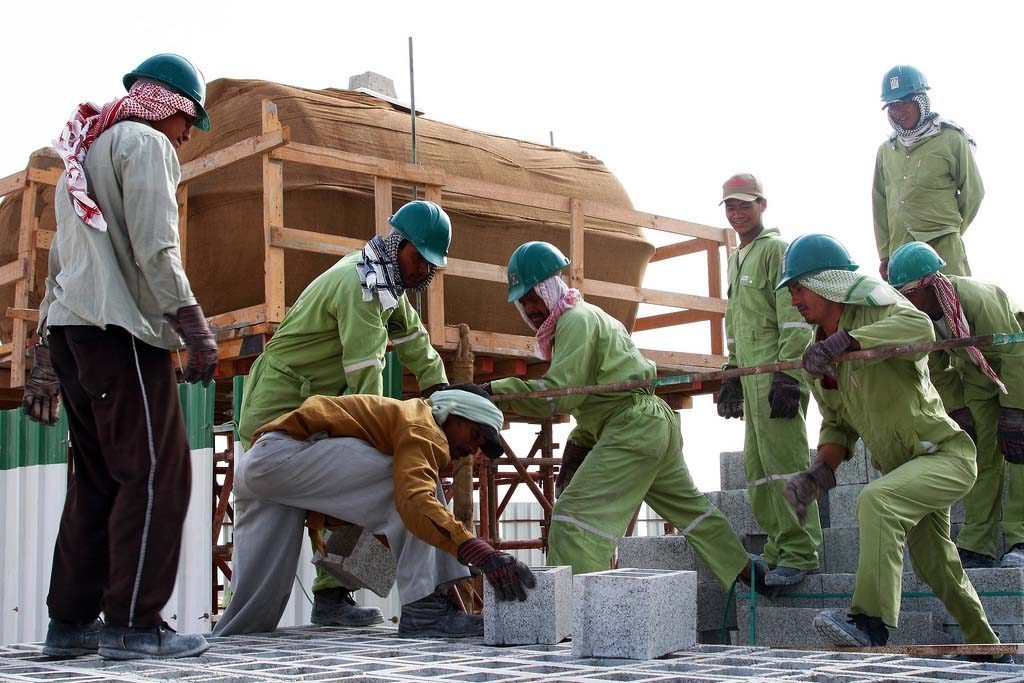
Companies in Qatar that fail to pay workers’ wages on time could temporarily lose the ability to hire more employees, according to new draft legislation announced by the Cabinet.
The law, if passed, would also give the country’s Ministry of Labor and Social Affairs (MOLSA) the ability to penalize errant companies by refusing to work with them until payment matters were resolved.
The penalties were announced after the Cabinet approved the latest version of legislation that requires companies to pay workers’ wages directly into a bank account through a Wage Protection System (WPS).

Details of the scheme were first announced at the end of April last year, when the Cabinet gave the initial nod to a number of proposed changes to Qatar’s Labor Law (No. 14 of 2004).
Since then, the draft law has been to the Cabinet several times for comment and review, and has also had input from the Advisory (Shura) Council. However, there is still no timeline for when it and other labor law changes will come into effect.
The new system aims to tackle the issue of late and non-wage payment to employees, which is one of the biggest complaints voiced by migrant workers based in Qatar.
Electronic salary transfer is seen as one way of stopping this abuse, and human rights groups have for some time been calling on Qatar to adopt this practice, which has already been introduced in the UAE.
How it works
Under the provisions, salaried workers who are hired on an annual or monthly basis must be paid their wages by direct deposit every month.
All other workers – including those on an hourly rate – must have their wages paid by electronic bank transfer at least every two weeks.
At the latest Cabinet meeting, Deputy Prime Minister and Minister of State for Cabinet Affairs Ahmed bin Abdullah Al-Mahmoud said in a statement issued by Qatar News Agency (QNA) that workers must be paid within the first seven days of the following month.
MOLSA’s Labor Inspection Department has been tasked with enforcing the new regulations and can order a detailed report from companies of their wage payments.
Companies that have failed to follow the new rules face a number of sanctions:
“The Minister or his authorized representative may bring against an employer who violates the provisions of this resolution, any of the following: 1 – Cease granting new work permits. 2. Or, cease all dealings with the Ministry, excluding attesting of the labor contracts,” the statement adds.
However, the blacklisting appears to be a temporary measure and would be lifted “by the Minister or his delegate” after the company submits approval that they have paid all outstanding wages, QNA reported.
Phased implementation
When the idea of a wage protection system was first announced last year, the state banking regulator Qatar Central Bank (QCB) was put in charge of creating and handling it.

The system is expected to be introduced in three phases.
The first phase will affect the largest companies, with more than 500 employees. The requirement will then be rolled out to firms with 100 to 500 workers, while SMEs with fewer than 100 employees will be included in the final stage.
The recommendations would revise articles 1, 66 and 145 of the Labor Law of 2004 and in particular are contrary to article 66, which states that employees can be paid in cash and in person, and salaries can be transferred to bank accounts only by “mutual consent.”
MOLSA, which oversees the recruitment of non-domestic workers, and the Ministry of Interior have been collaborating to develop a database to track who is to be included in the wage protection system and who is not.
Over the past several months, companies have been asked by the labor ministry to provide salary details of all their employees.

The latest statement refers to the WPS applying to workers “who are subject to the labor law.” In its current form, the this law does not apply to domestic staff, suggesting that they would also be exempt from having the provisions of the new regulations.
Aspects of the Labor Law are under revision, although it is not known if it will be extended to include residents working as housemaids and nannies.
The wage protection scheme is one of a a number of measures the government has proposed in a bid to better protect the rights of expat workers in Qatar. Other revisions to the exit permit and no objection certificate requirements are expected to make it easier for expats to leave the country and change jobs.
While there have been suggestions that these could come in to effect early this year, no firm date has yet been announced.
Thoughts?







